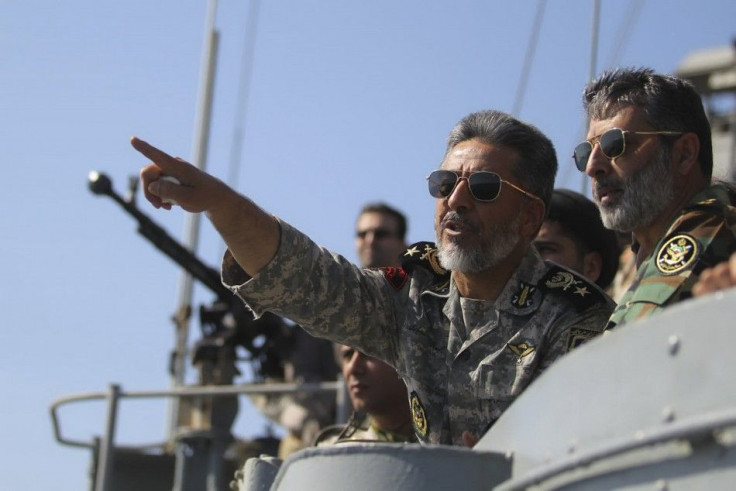Iran Plans Military Exercises In Hormuz, Gulf Council Unites Against Tehran

Iran announced on Tuesday that it is planning a series of naval military exercises in the strait of Hormuz over six days, beginning Dec. 28, Al-Arabiya reported.
The exercises will cover the Sea of Oman and parts of the Indian Ocean, Iranian Navy Commander Rear Admiral Habibollah Sayyari told the Iranian Student News Agency.
“We will definitely respect the maritime border of our neighbors and conduct the maneuvers based on international law,” Sayari said.
“Iran aims to demonstrate its defensive naval capabilities by conducting this exercise and send a message of peace and friendship to regional countries.”
The U.S. has previously told Iran that any attempt by the Iranian military to cross the strait would be grounds for U.S. military intervention. One-third of the world's oil passes through the Strait of Hormuz.
Coincidentally, on Tuesday the Gulf Cooperation Council announced that it will be forming a central military command after accusing Iran of attempting to meddle one too many times in the business of Arab countries operating in the Persian Gulf. In November, Saudi Arabia and Kuwait sent a letter to the United Nations officially complaining about Iranian speed boats crossing into the sovereign Kuwait-Saudi zone.
"Such actions could lead to confrontations endangering peace and security in the region," the letter said.
The announcement was made after a two-day summit meeting of the GCC in Manama, Bahrain.
Iran denied all accusations of interference. A spokesman for the Iran Foreign Ministry told the ISNA that the GCC was trying to "shift blame" for internal problems, and was "running away from reality."
Bahrain Foreign Minister Khalid al-Khalifa told reporters that Iran poses a "very serious threat," and that there was a lot of "meddling" in GCC states. He also said that the new central command for the GCC will "coordinate between all sub-commands and make them work under one umbrella."
The GCC consists of the six Arab Gulf countries: Saudi Arabia, the United Arab Emirates, Bahrain, Kuwait, Qatar and Oman. All are Sunni-led monarchies that, as Simon Henderson at the Washington Institute pointed out, emerged relatively unscathed from the Arab Spring, but are nonetheless wary about the future. Iran is Shiite-led, and it has accused the GCC of discrimination against Shiite Muslims, particularly in the case of the Saudi-UAE support for Bahrain's government violent suppression of the largely Shiite uprising in March 2011.
The GCC support for the Bahrain government at the time lent the regime's action a "fig leaf of respectability," Henderson wrote.
© Copyright IBTimes 2024. All rights reserved.






















